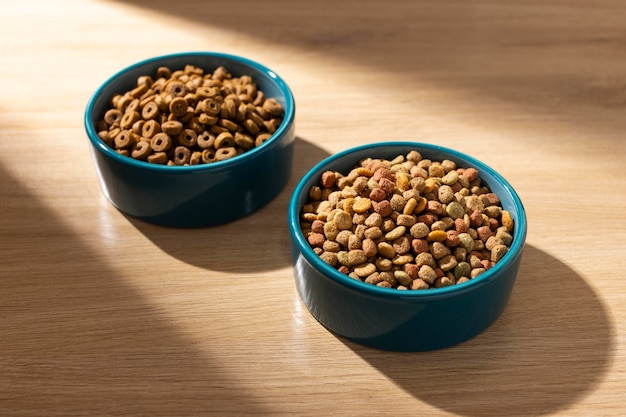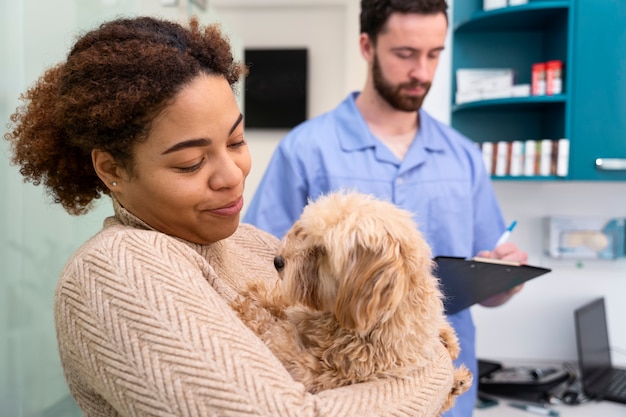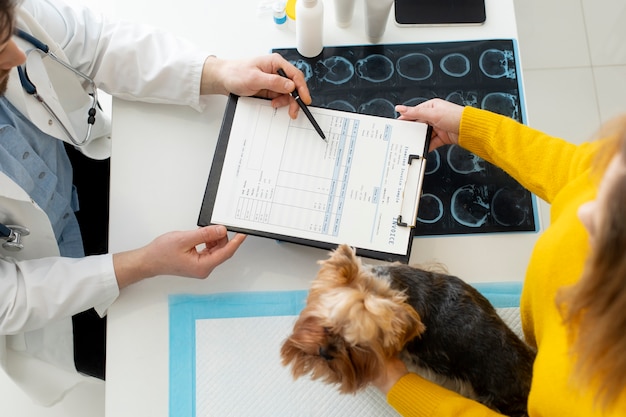Top Nutrition Tips for Healthier Pets in Flemington


Top Nutrition Tips for Healthier Pets in Flemington
A healthy pet diet is one of the most impactful ways to help your furry, feathered, or scaly companion thrive. Whether you share your home with a playful dog, a curious cat, or a unique exotic animal, proper nutrition is the foundation of long-term wellness. At Clover Hill Animal Hospital, we believe that every pet in Flemington and surrounding communities deserves individualized nutrition that keeps them happy, energetic, and resilient year-round. Many pet owners wonder: What should I really feed my pet? How do I handle changes in my pet’s appetite as the seasons shift? And how can I prevent common nutrition-related health issues before they start?
In this blog, our veterinary team will share essential pet nutrition tips tailored for the diverse pets of our region. We will explore how a healthy pet diet can prevent illness, support optimal growth, and adapt to your pet’s changing needs. You will also learn how to spot the signs of nutritional imbalance, discover practical feeding strategies for every life stage, and understand when it’s time to schedule an appointment at our Flemington location for a comprehensive wellness examination. If you are looking for a vet near me who prioritizes pet nutrition and preventive care, our compassionate veterinary professionals are ready to support you and your pet at every step.
For those interested in more in-depth support, we also offer wellness care services focused on nutrition, activity, and preventive care to help your pet maintain their best health.
Recognizing Nutrition Problems in Your Pet
Many pet owners are surprised to learn that the signs of nutritional imbalance can be subtle or easily mistaken for other issues. When a pet’s diet doesn’t meet their unique needs, you might notice changes in behavior, energy levels, or even their physical appearance. Key symptoms of inadequate nutrition include a dull or brittle coat, excessive shedding, flaky skin, and slow wound healing. Other warning signs are frequent digestive upset, such as vomiting or diarrhea, and sudden weight loss or gain. If your pet seems uninterested in food, is leaving meals unfinished, or is constantly begging between meals, it could indicate an underlying dietary concern or even a health problem that needs attention.
Additionally, changes in stool consistency, persistent bad breath, or dental issues may point toward an improper healthy pet diet. Exotic pets, including birds and reptiles, may show signs like abnormal shedding, changes in beak or claw growth, and lack of normal activity. For growing puppies, kittens, or juvenile exotics, slow development or stunted growth can also be a red flag.
If you observe any of these symptoms in your companion, it’s important to consult with a veterinarian near me. Early intervention can prevent minor nutrition issues from developing into more serious, chronic health conditions.
Why Nutrition Problems Happen: Causes and Contributing Factors
Nutrition issues in pets can develop for many reasons, and understanding these causes is key to prevention. First, not all commercial pet foods are created equal. Some may lack essential nutrients, use poor-quality ingredients, or be formulated for a different life stage than your pet’s current needs. Feeding table scraps, unbalanced homemade diets, or excessive treats can also disrupt the nutritional balance, leading to deficiencies or unhealthy weight gain.
Other factors that contribute to nutrition problems include age, breed, and activity level. For example, senior pets usually require fewer calories but more joint-supporting nutrients, while active working dogs may need a higher-calorie diet with extra protein. Exotic pets have especially specific dietary requirements; for instance, certain reptiles need a carefully balanced ratio of calcium and phosphorus, while birds often require a variety of seeds, pellets, and fresh produce for optimal health.
Seasonal changes can also influence your pet’s dietary needs. Colder months might prompt a need for more calories to maintain body heat, while summer weather can affect hydration and appetite. In Flemington, fluctuating temperatures and humidity can further impact how much and what type of food your pet requires throughout the year.
Medical conditions, such as allergies, dental disease, or gastrointestinal disorders, may affect how your pet absorbs nutrients or what foods they tolerate. For these situations, special diets or prescription nutrition plans may be necessary and should always be discussed with your veterinary team.
Professional Treatment and Management: How Our Flemington Veterinarians Can Help
Addressing nutrition concerns involves more than simply switching foods. At Clover Hill Animal Hospital, our team of veterinarians takes a comprehensive approach to evaluate your pet’s overall health, lifestyle, and unique nutritional requirements. The process typically begins with a thorough examination, a detailed history of your pet’s diet, and a discussion of any symptoms you have observed. Depending on your pet’s needs, we may recommend diagnostic testing to rule out underlying medical causes for appetite changes or weight fluctuations.
For pets with specific health challenges, our veterinary professionals can formulate a customized nutrition plan. Treatment options often involve recommending high-quality commercial diets that meet established nutritional standards, or in some cases, prescribing therapeutic diets for conditions such as kidney disease, diabetes, or food allergies. Exotic pets may require guidance on sourcing proper food items, preparing fresh produce, or supplementing with vitamins and minerals to mirror their wild diet as closely as possible.
Dental health is also a crucial aspect of pet nutrition. If your pet is experiencing trouble eating due to dental pain or oral disease, addressing those issues through dental care or oral surgery may be necessary before nutritional improvements can take full effect.
For families who prefer the convenience of home-based care, we offer home wellness exams that allow our veterinarians to assess your pet’s diet and health in a familiar environment. This personalized approach is especially helpful for pets who become stressed by travel or clinic visits.
Ongoing monitoring and regular check-ins are essential to ensure that your pet’s diet continues to meet their needs as they age or as seasons change. Adjustments may be recommended based on changes in weight, activity, or emerging health concerns.
Home Care and Prevention: Steps to Support a Healthy Pet Diet
Supporting your pet’s nutritional health at home begins with choosing the right food for their species, age, and lifestyle. Look for complete and balanced commercial diets that follow the nutritional guidelines established by veterinary nutrition experts. For dogs and cats, consider their age, breed, activity level, and any special health needs when selecting their diet. Exotic pets should be fed species-appropriate foods, which often means researching reputable suppliers or preparing fresh produce and protein sources as recommended by your veterinarian.
Portion control is equally important. Overfeeding, even healthy food, can lead to obesity and related medical problems. Follow feeding guidelines provided by your veterinary team and adjust portions as needed to maintain an ideal body condition. Treats should make up only a small portion of your pet’s daily caloric intake, and avoid offering human foods that could be harmful or nutritionally unbalanced.
Hydration plays a vital role in a healthy pet diet, especially during hot or dry spells in Flemington. Always provide clean, fresh water and monitor your pet’s drinking habits. For pets with special needs, such as those recovering from illness, young puppies and kittens, or senior animals, additional nutritional supplements or specific feeding schedules may be required. Discuss any changes in your pet’s appetite, weight, or eating behavior with your veterinarian promptly.
Seasonal adjustments to your pet’s nutrition may also be necessary. For example, pets may need more calories in the winter to help regulate body temperature, while summer may call for lighter meals and increased water intake. Exotic pets, particularly reptiles and birds, often have dietary needs that fluctuate with changes in humidity and light cycles.
Regular wellness care visits focused on nutrition and preventive health are an excellent way to catch subtle changes before they become larger issues. These appointments allow our veterinary team to monitor your pet’s progress, answer your questions, and fine-tune their diet as needed.
When to Seek Veterinary Care for Nutrition Concerns
Even with the best home care, some nutrition issues require professional attention. You should schedule an appointment at our Flemington location if your pet is showing signs such as persistent vomiting, diarrhea, sudden or unexplained weight loss, refusal to eat for more than 24 hours, or significant changes in appetite or water consumption. Pets with chronic health conditions, young puppies or kittens, seniors, or exotic species with unique dietary requirements benefit from regular check-ins to ensure their nutrition is on track.
Additionally, if you are unsure about the best diet for your pet, have questions about reading pet food labels, or need help developing a feeding schedule, our veterinary professionals are here to guide you. Never attempt to switch your pet’s diet drastically or introduce supplements without consulting your veterinarian, as this can sometimes do more harm than good.
For personalized support, we encourage you to reach out to our experienced team for a comprehensive pet exam that covers nutrition, preventive care, and overall wellness.
Conclusion: Healthier Pets Start with Nutrition—Let’s Work Together
A well-balanced, healthy pet diet is one of the most loving gifts you can offer your companion. By staying alert for signs of nutritional imbalance, understanding the unique needs of your pet, and partnering with a trusted veterinarian near me, you set the stage for a long, joyful life together. At Clover Hill Animal Hospital, our veterinarians are committed to providing compassionate, individualized nutrition guidance for dogs, cats, and exotic pets across Flemington and surrounding communities.
If you are ready to take the next step in supporting your pet’s health, we invite you to schedule an appointment for a wellness care visit focused on nutrition and preventive health or a convenient home wellness exam. Our veterinary professionals are here to answer your questions, create a tailored nutrition plan, and address any health concerns that arise. For comprehensive pet nutrition tips and support for a healthy pet diet in Flemington, contact us at (908) 806-4525 or visit us at 240 US 202, Flemington, NJ 08822.
Your pet’s journey to wellness starts with the right nutrition, and our team is honored to help every step of the way.
This blog is intended for informational purposes and does not replace professional veterinary advice. Always consult your veterinarian for guidance tailored to your pet’s individual needs. For more information on pet nutrition tips or to schedule an appointment, reach out to Clover Hill Animal Hospital today.



















